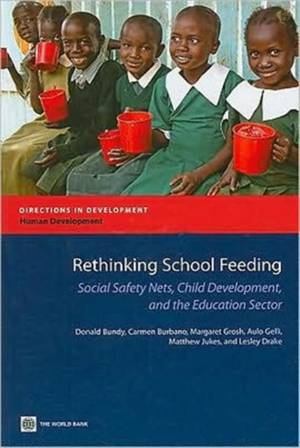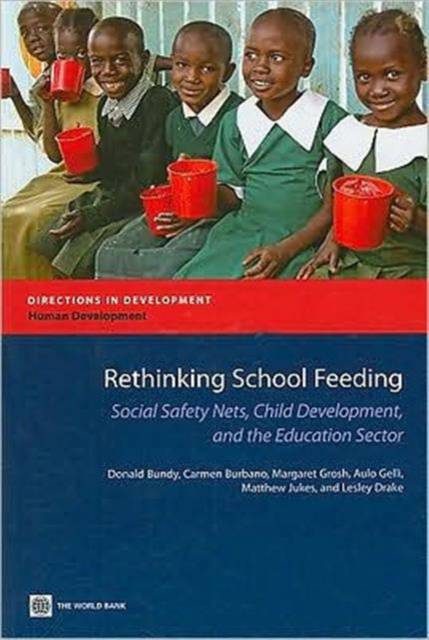
Bedankt voor het vertrouwen het afgelopen jaar! Om jou te bedanken bieden we GRATIS verzending (in België) aan op alles gedurende de hele maand januari.
- Afhalen na 1 uur in een winkel met voorraad
- In januari gratis thuislevering in België
- Ruim aanbod met 7 miljoen producten
Bedankt voor het vertrouwen het afgelopen jaar! Om jou te bedanken bieden we GRATIS verzending (in België) aan op alles gedurende de hele maand januari.
- Afhalen na 1 uur in een winkel met voorraad
- In januari gratis thuislevering in België
- Ruim aanbod met 7 miljoen producten
Zoeken
Rethinking School Feeding
Social Safety Nets, Child Development, and the Education Sector
Donald Bundy, Carmen Burbano, Margaret Grosh, Aulo Gelli, Lesley Drake
Paperback
€ 33,45
+ 66 punten
Omschrijving
A paper, produced jointly by the World Bank and World Food Program, analyzes the evidence on school feeding and offers guidance on best practice in its design and implementation.
Specificaties
Betrokkenen
- Auteur(s):
- Uitgeverij:
Inhoud
- Aantal bladzijden:
- 184
Eigenschappen
- Productcode (EAN):
- 9780821379745
- Verschijningsdatum:
- 30/07/2009
- Uitvoering:
- Paperback
- Afmetingen:
- 229 mm x 150 mm
- Gewicht:
- 274 g

Alleen bij Standaard Boekhandel
+ 66 punten op je klantenkaart van Standaard Boekhandel
Beoordelingen
We publiceren alleen reviews die voldoen aan de voorwaarden voor reviews. Bekijk onze voorwaarden voor reviews.









